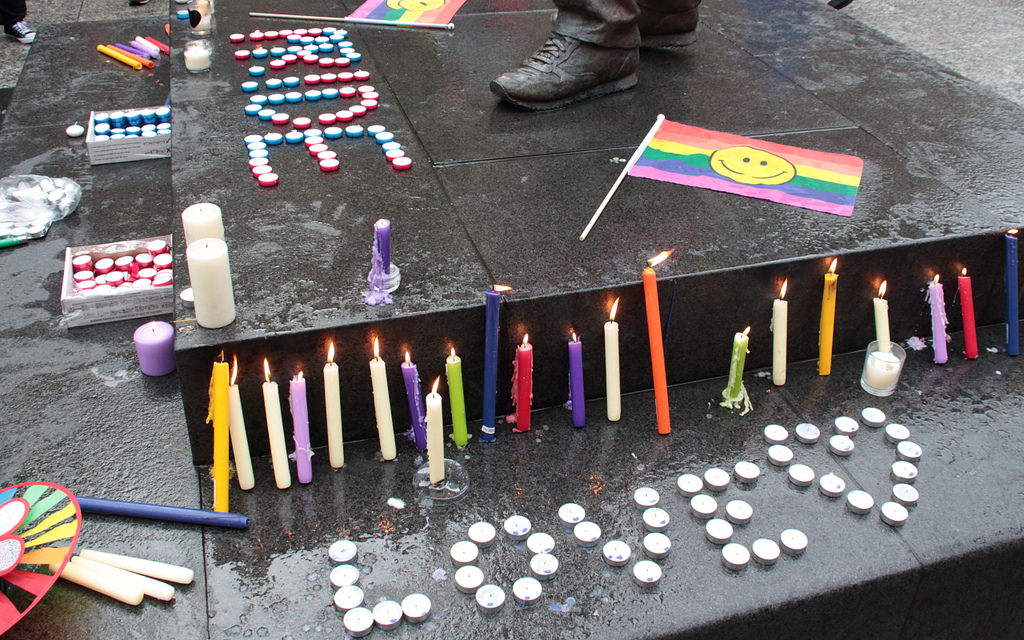
The news about the shooting was the first thing I saw when I woke up on Sunday. Someone who is very close to me—someone I actually call my son—had posted about it on Facebook, and I couldn’t believe what was going on.
I’m a native Floridian and lived in Orlando for 10 years, when I was still struggling to accept myself as a gay man. People I know were at Pulse that night. Some of my friends were held hostage. They had to climb through the air conditioning system to get out.
It’s terrifying to think about being in a place that you think is safe—a gay club—and to be shot because of who you are or who you love. Wherever I go, I could be targeted because I’m an openly out, proud Black gay man. Even at my church—which is welcoming of LGBT people—we have undercover officers because of security concerns. Gay clubs like Pulse are supposed to be a refuge, especially for young people—a place to be free, let your hair down, have a good time. That was all disrupted that night.

I’m from DeLand, Florida—people call it “Dead land”—about 45 miles away from Orlando. I’m the fourth child of five kids, and I grew up in the church, Baptist and Pentecostal.
I came out at the age of 21. At first it was all good, my mom said she loved me no matter what. But soon she realized that it wasn’t just a phase, that she’d have to deal with what people were saying at church, and it became a problem. My twin brother was really hurt. For three months, he wouldn’t talk to me—he’d look right at me and not say a word. I had to figure out on my own how to survive in this world.
It was a fight, a war that I fought within myself. The church had taught me one thing, but my mind and my body were telling me another thing. I did not want to identify myself as being gay because of what I was taught. I didn’t want to say this is who I am, because I knew the struggles associated with that.
 I moved to Orlando in my early 20s because I wanted to get away from home. I just wanted to live, and I couldn’t do that in DeLand. I found friends who I loved, and they eventually became my surrogate family. They helped me navigate life, get a better understanding of who I was, what my life was meant to be.
I moved to Orlando in my early 20s because I wanted to get away from home. I just wanted to live, and I couldn’t do that in DeLand. I found friends who I loved, and they eventually became my surrogate family. They helped me navigate life, get a better understanding of who I was, what my life was meant to be.
Learning to live and love myself was a long process. I came out at 21, and I didn’t come to terms with who I am until I was 32 or 33. I’m 50 now, and I can’t lie, there’s certain things I still struggle with.
But for the most part, I’m comfortable and happy with who I am. Things have changed—I figured out how everything fits into place. My mom eventually came to terms with who I am. We’re in a better place now, but it took years.
It was shocking to hear about the shooting in Orlando, a city that I had called home for many years and was so important in my life. Shocking that so many people I love—who I still consider part of my family—were affected by this tragedy.
Situations like these cause people to fear for their lives, but this will not destroy or break us. Across the country, people are taking back their lives and standing together as a united front.
When it comes down to it, we need to step away from fear and hate and step into love. We need to let people know they can live their authentic life and be truthful to who they are, without any reservations. We need to learn to love people as human beings, just for who they are and where they stand.